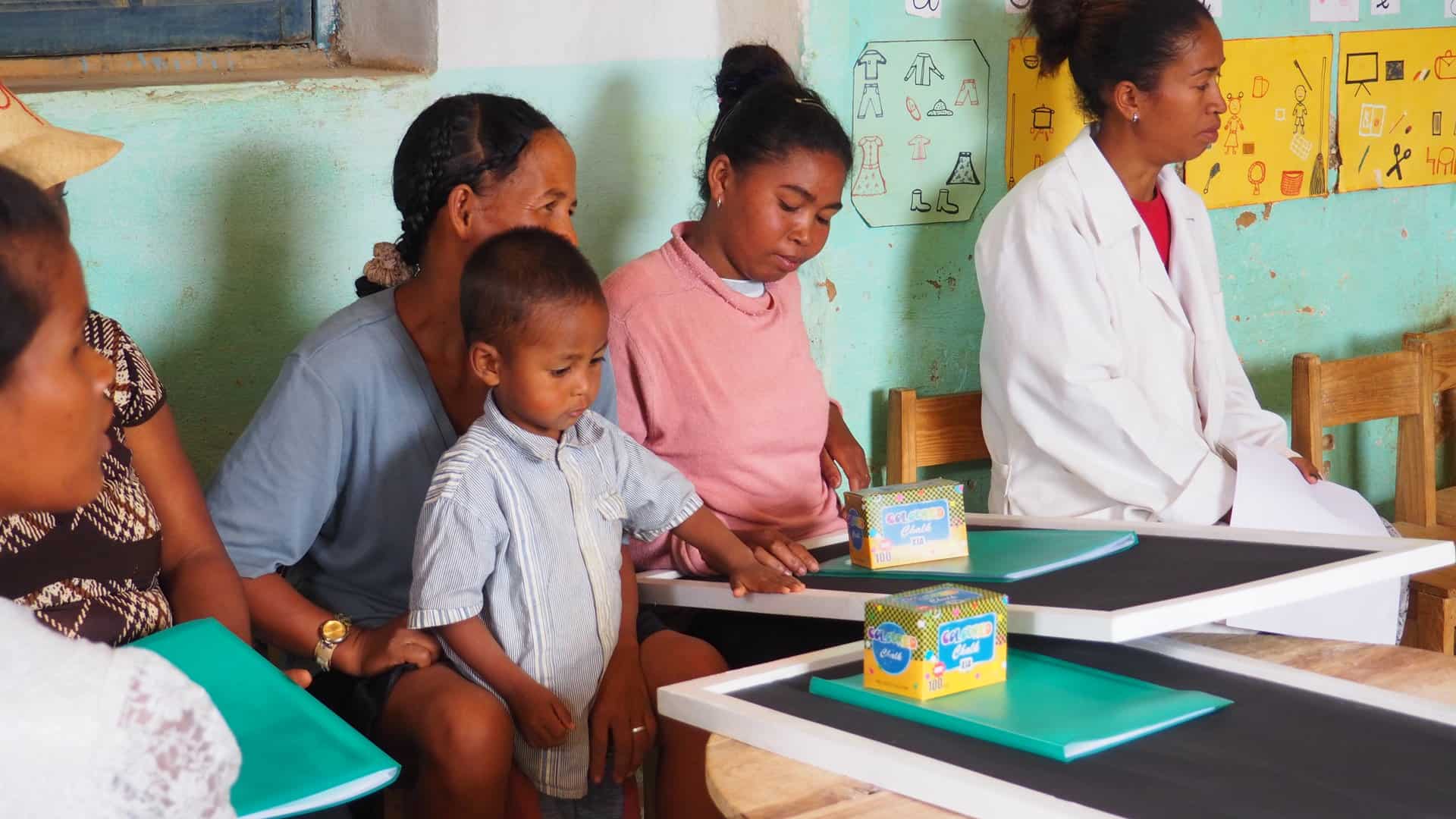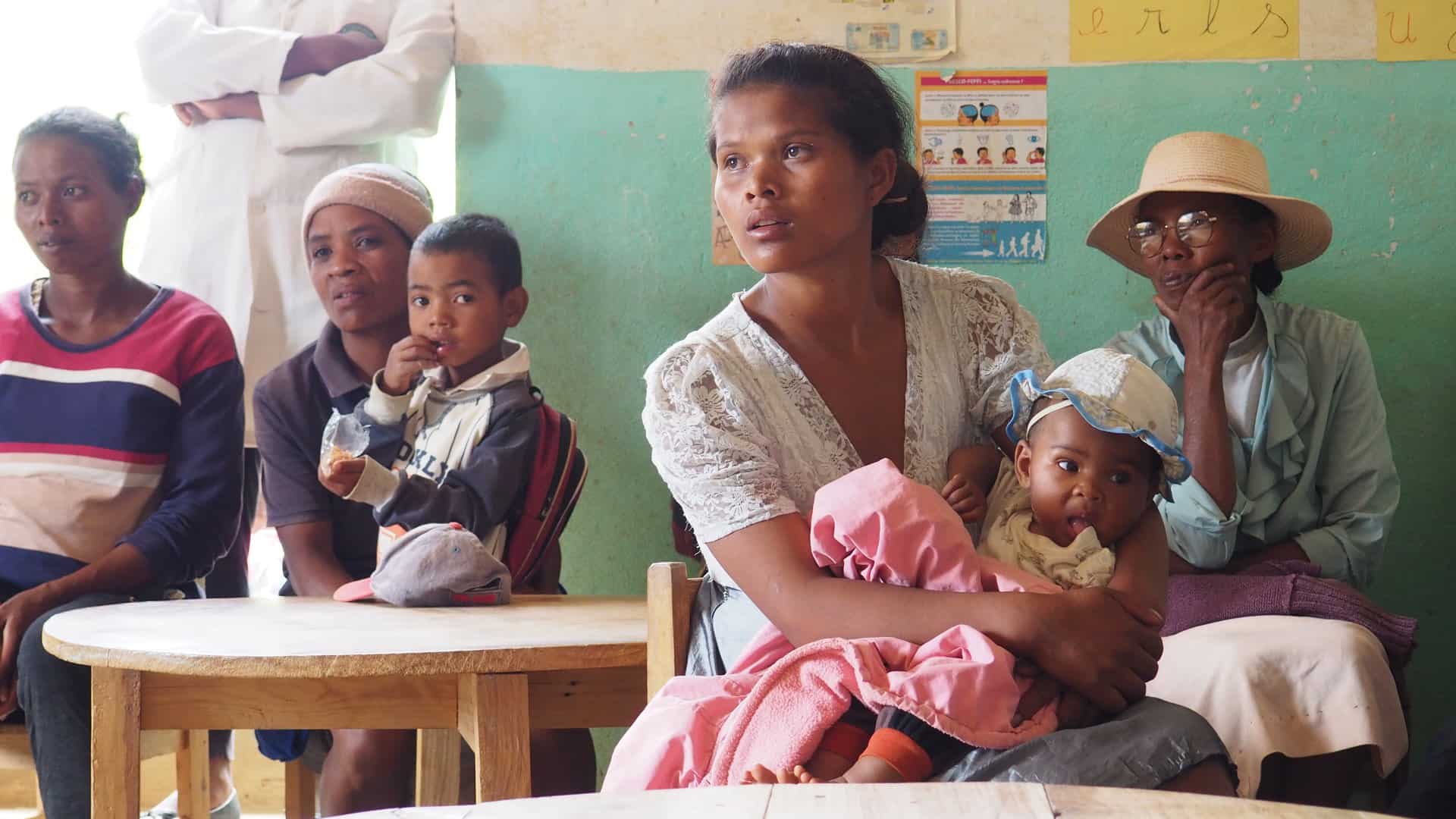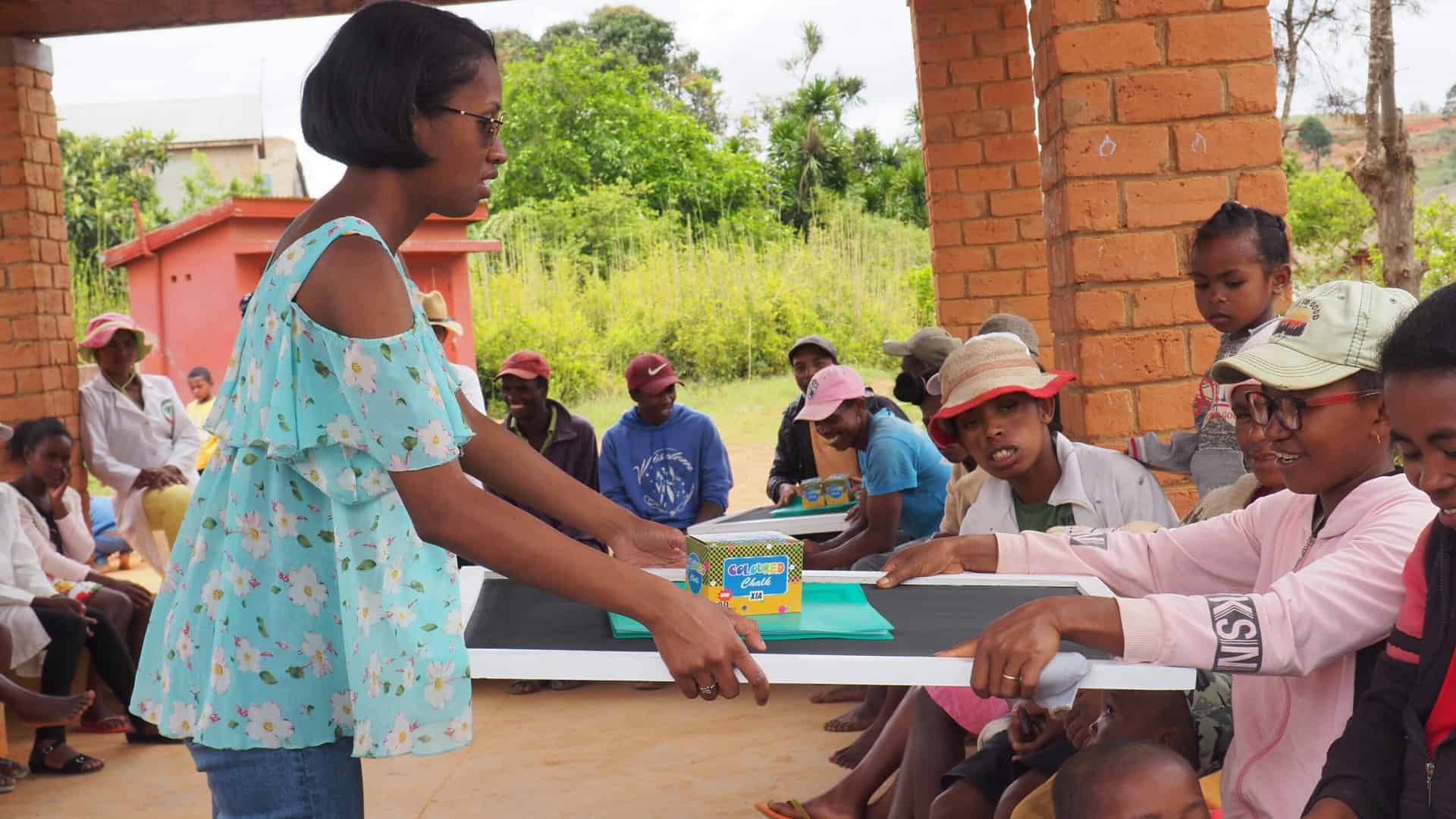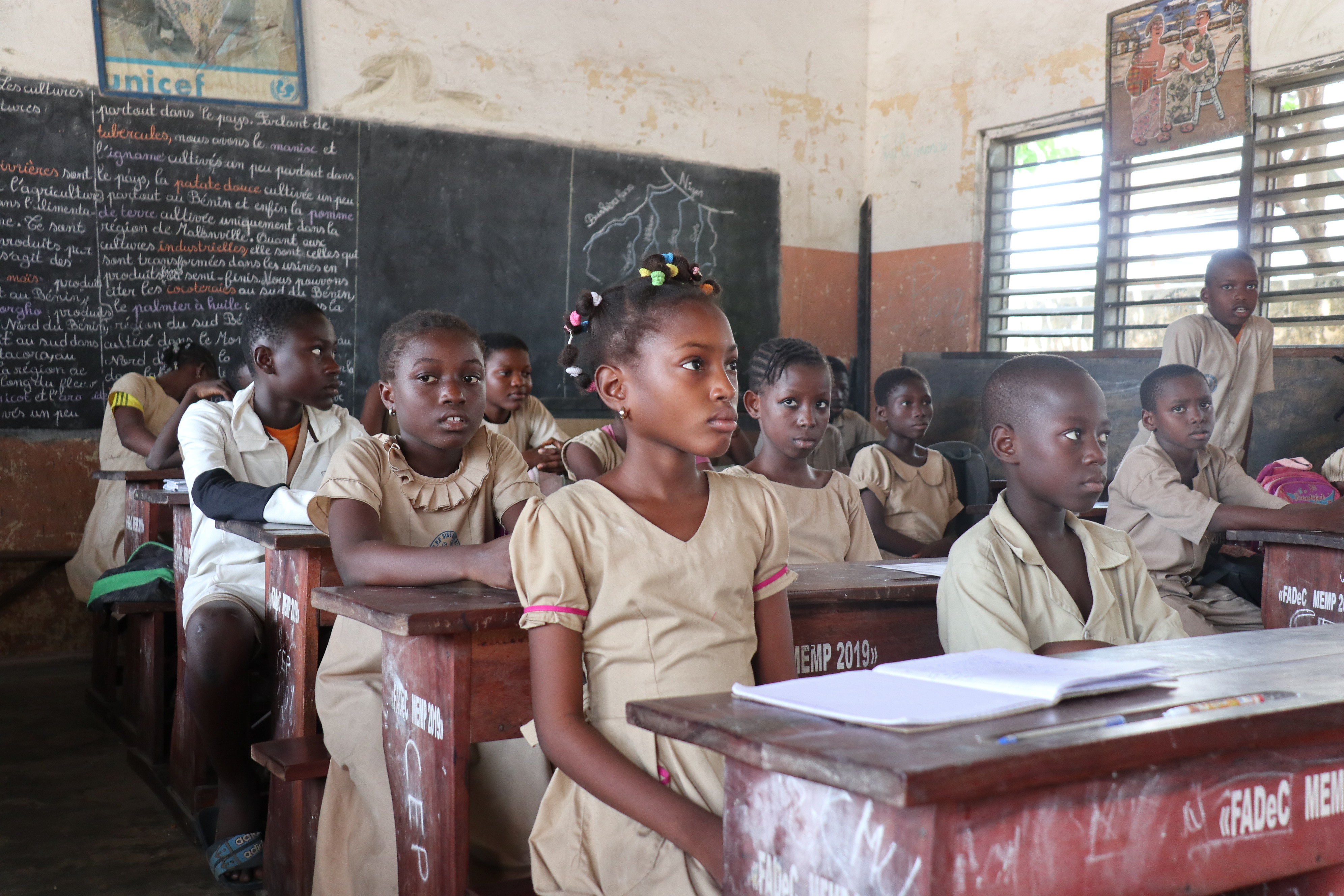Quality pre-school education is the foundation of a child's educational journey. Despite the recognised advantages of early childhood education, many children in Madagascar are not enrolled in school. Through the Investing in Early Childhood Education and Care (IEPPE) projectAction Education promotes access to pre-school education in rural areas.Analamanga and Vakinankaratra regions.
Why should access to early childhood education become a global priority?
In 2019, UNICEF was already sounding the alarm about the lack of access to education in Madagascar.
"More than 1,300,000 children, or nearly 60 % of pre-school children, are not enrolled in public or private pre-school education."
Madagascar is not the only country concerned, as early childhood education and protection is far from being a priority when it comes to implementing policies and allocating funding. What's more, early childhood education and protection is not accessible to everyone, as marginalised groups are often excluded.
According to UNICEF : "Almost half of the world's children of pre-primary school age are not enrolled in a pre-school.
However, nursery school or pre-school is the foundation of a child's cerebral, cognitive, motor and socio-emotional development, and makes a major contribution to their development.
In 2022, UNESCO emphasised the importance of early childhood education and protection, as early childhood is considered to be the most vulnerable stage of development. "a means of promoting equity and social justice, inclusive economic growth and sustainable development"..
Pre-school learning must therefore become a government priority worldwide. Indeed, it has been shown that a child's first experiences form either a solid or a fragile foundation for their future life. The first years of a child's life are therefore decisive for its future, as they influence its development and the way it integrates knowledge.

During this crucial period, between the ages of 3 and 5, the child acquires essential basic knowledge of language and numbers. This learning phase is crucial to their future schooling. Indeed, pupils who begin their school career with a solid foundation acquired in pre-school are more likely to develop a sense of academic belonging. Pre-school education also contributes to their intellectual stimulation, involvement and motivation at school.
In addition, children who benefit from high-quality pre-school education are better prepared for primary school, and this helps to reduce inequalities between socially advantaged and disadvantaged children from the very first day of school.
Against this backdrop, and with the aim of transforming the lives of thousands of children, the IEPPE project has been set up in Madagascar and the Democratic Republic of Congo. Burkina Faso.
Implementing an ambitious project to invest in early childhood education and protection
In Madagascar, a number of factors have an impact on children's early education: economic difficulties, lack of childminders, intra-regional disparities, privatisation of schools, etc. In addition, there are no operational mechanisms in place to guarantee a link between pre-school and primary school.
In addition, many children are stunted in their development due to poor growth, malnutrition, ill health and lack of stimulation. As a result, children are ill-prepared for school and experience learning difficulties when they enter the formal school system.
The IEPPE programme aims to support those involved in early childhood education, from the community to the institutional level, to ensure that education is sustainable, fluid and of high quality.
Co-financed by the Agence Française de Développement (AFD), the IEPPE project is being developed by Action Education in 6 municipalities in Madagascar.
The IEPPE project targets 4,450 children.
The project also stands out for its commitment to establishing collaboration between schools, families and local and educational authorities. With this in mind, it is aimed at the families of the children concerned, namely :
- 4400 parents
- 300 grandmothers.
Other stakeholders involved include :
- 40 pre-school and primary education structures
- Decentralised services responsible for education and child protection
- 10 Civil Society Organisations (CSOs).

The development of quality early childhood education in the Antsahafilo region of Madagascar
The main aim of the project is to take targeted action in the Antsahafilo region, with particular emphasis on health, nutrition and learning conditions for young children.
It is therefore vital to inform families and raise their awareness of the importance of pre-school education. The support offered to parents is designed to facilitate their involvement in preparing their children for school and their holistic development.
In November 2023, parents at the 20 intervention sites, located in the Antsirabe II and Ambohidratrimo school districts, were given school preparation tools. The provision of tools was followed by awareness-raising activities on school readiness, as well as training on the judicious use of the toolbox, thus ensuring effective implementation of the resources provided.

The project also stands out for its commitment to encouraging dialogue between school management, families and local and education authorities.
At the same time, educational staff receive ongoing training on crucial issues such as health, nutrition and child protection.
Training Malagasy teachers in early childhood education and protection
A series of training sessions were organised in September 2023 to inform, raise awareness and provide more support for teachers on issues relating to early childhood education and care.
A number of pre-school and primary school teachers from the 20 intervention sites took part in these training sessions in Antsirabe II and Ambodratrimo.
These training sessions were structured around three fundamental modules:
- Child-centred teaching
- 3 weeks of early learning for CP1s
- Drawing up a technical preparation sheet.






